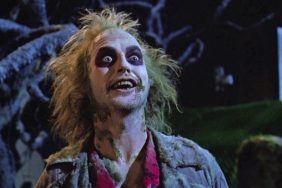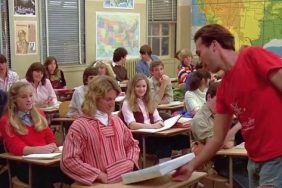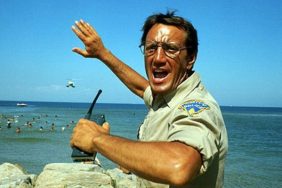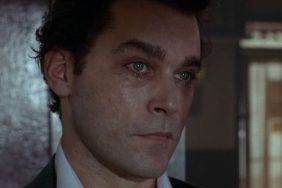When a movie is successful, the studio usually wants more of them. The same characters, the same situations if at all possible, and that’s how sequels get made. But sometimes a movie is a big hit but you can’t get the original stars back. Or sometimes the most exciting parts of the film are the side characters, who deserve an opportunity to step into the spotlight.
That’s how spinoffs get made, when people realize there’s talent lurking in the periphery, or serious dramatic and comedic possibilities outside of the original spotlight. This weekend’s release of Rogue One: A Star Wars Story is the perfect example. The original trilogy kicked off after somebody stole the plans to the Death Star, but nobody ever told the story of how those plans got pilfered in the first place. And so we get Gareth Edwards’ film, which is kinda neat, but obviously has too many problems to qualify as the best spinoff ever.
So, what IS the best spinoff ever? We asked our panel of film critics – Crave’s William Bibbiani and Witney Seibold, and Collider’s Brian Formo – to each pick one film that represents the pinnacle of the medium, and as usual, they each picked a different damned film. Find out what they chose, let us know your favorites, and come back next week for – GASP! – the final Best Movie Ever… EVER!
Witney Seibold’s Pick: A Shot in the Dark (1964)

United Artists
Although this won’t be my pick for the best spinoff of all time, I’m very fond of the story behind Jason Eisener’s Hobo with a Shotgun. Part of the ad campaign for the 2007 film Grindhouse involved a sweepstakes wherein contestants were invited to make fake previews for nonexistent movies, very much like the fake previews that appeared in Grindhouse. The winner of said contest was to have their preview shown in theaters at very select screenings of the film. Eisener’s silly Hobo with a Shotgun won. Eventually Robert Rodriguez was enterprising enough to turn his own fake preview – Machete – into an actual film, and Eisener, just as enterprising, managed to make a real film of Hobo with a Shotgun, turning out an extremely violent and weirdo movie starring Rutger Hauer.
But when it comes to selecting a spinoff that is actually good, my mind jumps straight to A Shot in the Dark, the 1964 comedy that was a spinoff of the just-released The Pink Panther, and the film that essentially launched the long-running Pink Panther series, shifting focus away from a gentleman catburglar, and toward the bumbling French inspector Clouseau (Peter Sellers). The 1963 original was dashing and fun, but plays a little bit staid by today’s standards, opting for a classy comedy of manners more than a broad farce. Anything with David Niven is going to be classy. Inspector Clouseau, however, was a standout supporting character in the catburglar’s drama, and the highlights of the original are indeed the scenes of Clouseau attempting to behave like a normal person.
Director Blake Edwards saw the reaction audiences were having to Clouseau, and essentially rushed a sequel into production, coming out with A Shot in the Dark only a few months after its American debut (The Pink Panther opened in America on March 20, A Shot in the Dark on June 23. A Shot in the Dark is funnier, tighter, and pretty much overall better than The Pink Panther, and the Clouseau character became such a hit, that he was featured in several more films that, in turn, led to other spin offs (Trail of the Pink Panther, Son of the Pink Panther) and even two remakes. Many of the follow-ups are awful, but the some of those earlier films are the best comedies you’ll ever see.
William Bibbiani’s Pick: The Fast and the Furious: Tokyo Drift (2006)

Universal Pictures
I recently argued that A Shot in the Dark was technically a sequel instead of a spinoff, so I guess I can’t in good conscience say it’s both. Instead, let me guide you towards a film that counts as TWO spinoffs: The Fast and the Furious: Tokyo Drift, a NOS-injected street racing flick that transports the heist action of the first two Fast and the Furious movies to Japan and throws in a Karate Kid riff just for the heck of it.
Tokyo Drift stars Lucas Black as an American teenager who’s shipped off to Japan after his latest race causes unthinkable amounts of property damage. There, he discovers the street racing scene is just as vibrant, but it takes on a completely different form: drifting, a complex maneuver that’s totally alien to his American sensibilities. He has to learn a new skill, get the girl, beat the bad guys, when his self-respect. It’s a slick, well-crafted, totally engaging sports movie set in the Fast and the Furious universe; separate but tangentially connected by Han (Sung Kang), a character who would become important over the course of the next four films in the franchise.
But here’s where The Fast and the Furious: Tokyo Drift gets weird and awesome. Han doesn’t just connect Tokyo Drift to the rest of the Fast and Furious movies, he also connects this film (and all the others) to Better Luck Tomorrow, a micro-budget crime drama directed by Justin Lin, who also directed Tokyo Drift, Fast & Furious, Fast Five, Fast & Furious 6 and Furious 7. That 2002 drama, about overachieving college students who turn to crime out of boredom, is now an important part of one of the world’s most lucrative action franchises, and it all started here. Weird, huh?
Brian Formo’s Pick: Creed (2015)

Warner Bros.
Spinoffs are the sugarplum dreams of lazy executives who’d rather explore the idea of cinema as a corporate landscape than as a blank canvas for artists and entertainers to do the best work that’s inside them. They’re a filmed stock portfolio. So when one is actually good it’s pretty remarkable. Fittingly, the best spinoff ever actually came from the pitch of an artist to the studio and wasn’t something that they were developing themselves.
In an era of spinoffs and sequels, Creed looked like the least necessary—as Rocky Balboa’s story had concluded decently with Rocky Balboa—but in this filmmaking climate, Ryan Coogler‘s film proved itself to be absolutely necessary. It helps that Coogler was the genesis for the project and brought it to the Italian Stallion (Sylvester Stallone) himself. The Fruitvale Station director was no hired hand. Creed was a passion project. And Coogler picks the boxing movie up off the mat and gives us exactly what we need: not another great white hope.
Michael B. Jordan is Apollo Creed’s son, Adonis, who is following his deceased father’s boxing two-steps; his father’s friend, Balboa (Sylvester Stallone), trains Adonis both in and out of the ring. Although it is refreshing to see a modern black character being built with the type of lore that’s almost never used on characters who are under-represented at multiplexes, Creed lacks speeches and soapboxes. It favors hard work and it recognizes the silent, awed communication that hard work elicits. Creed might hit many of the same story pinpoints as the original Rocky, but Rocky never looked like this before. Creed is both light as a feather (an early bout is magnificently filmed in one single take, with precise, gliding movement from cinematographer Maryse Alberti) and stiff as a board (Jordan and Stallone are a perfect match of stubborn—yet respectful—men). Creed is a populist winner that the cinemas needed.








